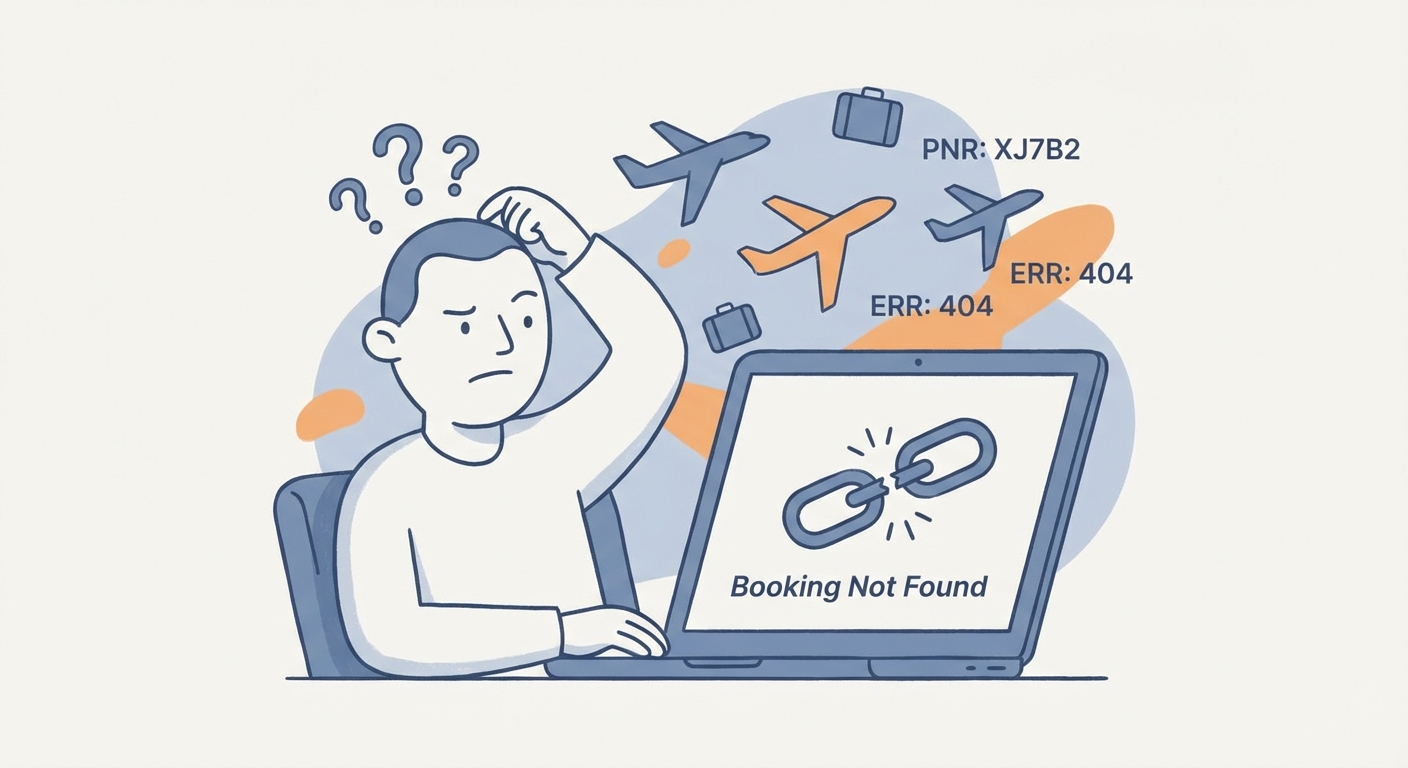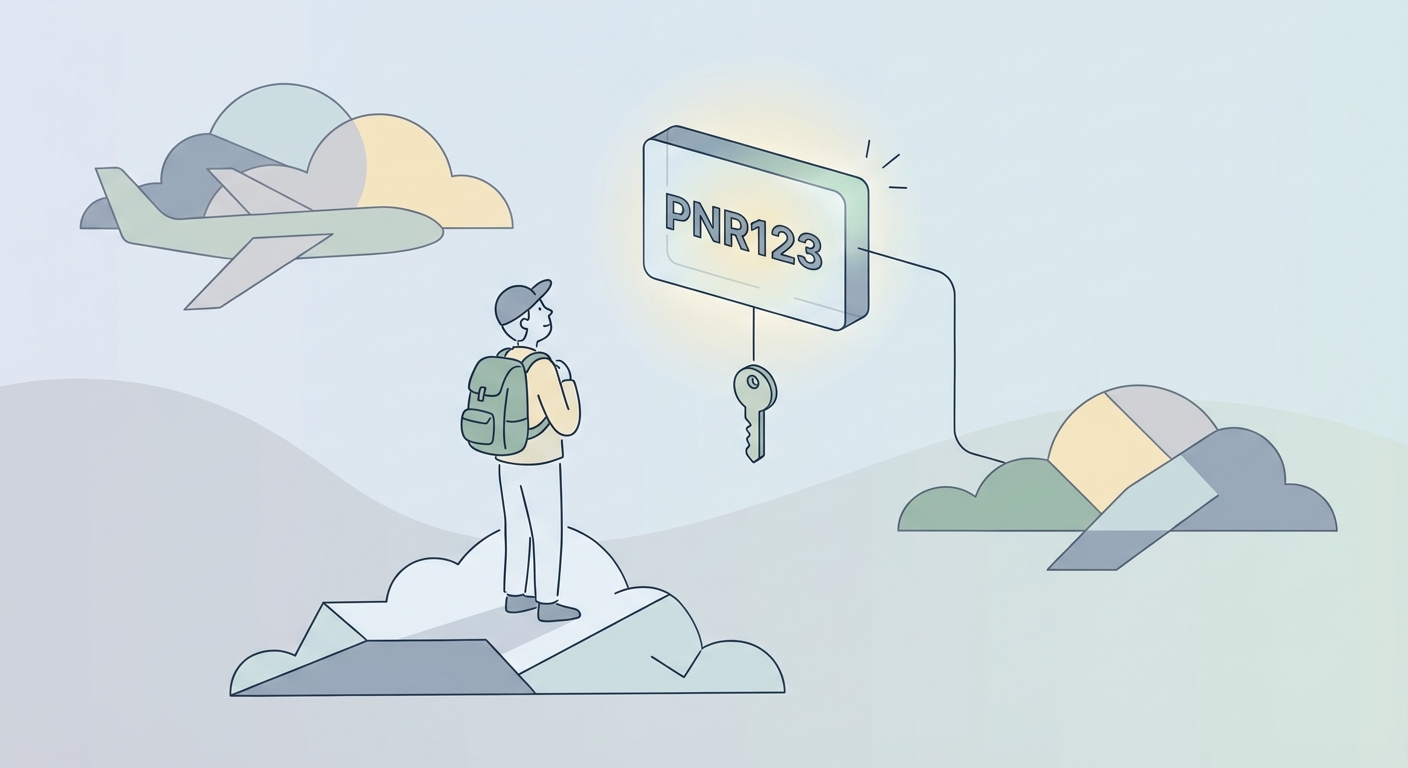What Are the Benefits of Using a Global Distribution System for Travel Booking?
TL;DR
- This article explores the advantages of using a Global Distribution System (GDS) for travel bookings. It covers how GDS enhances reach to global markets, streamlines booking processes, and provides real-time access to a vast inventory of flights, hotels, and other travel services. Understanding GDS benefits can significantly improve efficiency and profitability for travel agencies and enhance the booking experience for travelers.
Understanding Global Distribution Systems (GDS)
Okay, so you're planning an adventure, huh? Ever wonder how travel agents seem to pull those perfect itineraries out of thin air? A big part of their secret weapon is something called a Global Distribution System, or GDS. It's kinda like the backstage pass to the travel industry.
A Global Distribution System (GDS) is basically a huge, computerized network that connects travel agencies and other distributors with a massive inventory of travel services. Think airlines, hotels, car rentals, cruises – you name it, it's probably in there. It lets agents see real-time availability and pricing, so they can book stuff instantly.
- Imagine it as a super-connector. The GDS acts as the go-between, linking travel agents to, like, thousands of airlines, hotel chains, and rental companies. This is way more efficient than calling each one individually, trust me.
- The GDS network is made up of a central database, filled with info, and a bunch of access points that travel agents use. These access points, usually terminals or fancy software, let agents search for flights, rooms, and all that jazz.
- GDS plays a crucial role; enabling travel agencies to access a broad spectrum of travel options and provide comprehensive services to their clients. It's how they can compare prices, schedules, and amenities across different providers in one place.
Back in the day, airlines were the first to use these systems to manage their flight bookings. American Airlines, for example, launched Sabre way back when. Over time, these systems evolved to include other travel services and opened up to travel agencies. Now, they're essential for the whole industry.
You've probably heard of some of the big names: Amadeus, Sabre, and Travelport.
- Amadeus is a huge player, especially in Europe and Asia. They offer a wide range of services, from flight bookings to hotel reservations and even stuff like event ticketing.
- Sabre, originally developed by American Airlines, is another giant. They're particularly strong in North America, and they provide a ton of technology solutions for airlines and hotels.
- Travelport is another major player, operating systems like Apollo, Galileo, and Worldspan. They offer a global distribution system with a focus on providing travel content and technology solutions for travel agencies, corporations, and travel suppliers.
These systems compete with each other, constantly adding new features and trying to grab more market share. It's a bit like a tech arms race, but for travel. For instance, Amadeus has been pushing its cloud-based platform and investing heavily in ai for personalized travel, while Sabre has focused on modernizing its core systems and expanding its partnerships with technology providers. Travelport, on the other hand, has been emphasizing its focus on content aggregation and offering flexible solutions for different types of travel businesses.
So, how is a GDS different from, say, Expedia or Booking.com? Good question!
- Online Travel Agencies (OTAs) are consumer-facing websites, where as GDS is primarily used by travel professionals. OTAs get their data from GDS (or directly from suppliers, or other aggregators), but they present it in a way that's easy for anyone to use.
- GDSs have a much larger inventory and global reach. They provide access to a wider range of airlines, hotels, and other travel services that you might not find on consumer sites. This is largely because GDS systems have direct contracts with suppliers, operating more like a wholesale network where they aggregate content from numerous sources, whereas OTAs often aggregate content from various sources, including GDS.
- One limitation is that it can be more complex to use than a simple website. It's designed for trained travel agents who know how to navigate the system.
Think of it this way: GDS is the engine that powers a lot of the travel booking world. Without it, travel agents would be stuck making a ton of phone calls and sifting through piles of brochures.
Now that you have a handle on what a GDS is, let's dive into the specific benefits it offers in the next section.
Benefits of Using a GDS for Travel Booking
Okay, so you know how sometimes you feel like you're missing out on some amazing deals? Well, GDS can help with that in the travel world. It's not just about booking flights; it's a whole ecosystem of benefits.
One of the biggest perks of using a GDS is the sheer reach it offers. We're talking global scale here. It's like having a key to unlock travel markets all over the planet.
- Think about it: instead of just tapping into your local market, you're suddenly visible to travel agents and partners worldwide. This is huge for smaller hotels or airlines trying to get their name out there.
- GDS connects you to a vast network of travel suppliers. Seriously, it's like the ultimate travel industry networking event, but it's happening 24/7. You can get your services in front of agents who specialize in everything from luxury cruises to budget backpacking trips.
- You also get access to, like, a wild range of travel products and services. It's not just flights and hotels; it's tours, activities, car rentals, and even train tickets in some cases. It’s a one-stop-shop for travel agents building complex itineraries.
This global reach can be a game-changer, especially if you're trying to expand your business or target new customer segments. It's like going from selling lemonade on your street to having a lemonade stand at an international festival.
Ever booked a hotel room online, only to find out it's not actually available? Super annoying, right? GDS helps cut down on that kinda headache.
- It provides real-time info on flights, hotels, and car rentals. This means travel agents are seeing the most up-to-date availability and pricing. No more outdated spreadsheets or crossed fingers.
- This system ensures pretty accurate availability and pricing. This is important because it helps avoid disappointing travelers. Nobody wants to show up at a hotel only to find out they don't have a room, honestly.
- It reduces the risk of overbooking and booking errors. Seriously, those errors can be a nightmare to fix, especially when you're dealing with international travel. GDS helps keep everything straight. For example, fewer manual data entry mistakes means fewer incorrect room types booked or wrong flight dates confirmed, which directly leads to fewer canceled bookings and more accurate confirmations for the traveler.
This real-time aspect is crucial in today's fast-paced travel market. Things change so quickly, and having access to current information can make all the difference.
Let's be real: nobody likes paperwork. GDS helps kick the old ways to the curb with automation.
- It automates booking processes for faster transactions. This means travel agents can book flights, hotels, and car rentals with just a few clicks. No more endless phone calls and faxes.
- This improves efficiency in managing travel arrangements. Travel agents can handle more bookings in less time, which means more happy customers and more revenue.
- It reduces manual effort and administrative tasks. Think about all the time saved by not having to manually enter data into multiple systems. That time can be spent on more important things, like providing better customer service.
This automation isn't just about saving time; it's about reducing errors and improving the overall customer experience.
GDS isn't a one-trick pony. It brings together a bunch of different travel services into one place.
- It integrates various travel services into a single platform. This means travel agents can book flights, hotels, car rentals, tours, and activities all in one system. It's super convenient.
- This offers comprehensive travel solutions to customers. Travel agents can create customized itineraries that meet the specific needs of their clients. It's all about personalization.
- It improves the customer experience with diverse options. Customers have more choices and can find the perfect travel arrangements for their budget and preferences.
Think about it: instead of having to go to multiple websites or call different companies, travel agents can do everything in one place. This saves time and makes the whole process much smoother.
Let's talk money. GDS can help travel providers optimize their pricing and manage their revenue more effectively.
- It optimizes pricing strategies with real-time data. This means airlines and hotels can adjust their prices based on demand and competition. It's all about maximizing revenue.
- This manages revenue effectively through dynamic pricing. Prices can fluctuate based on factors like time of day, day of the week, and special events. GDS facilitates this by integrating with airline yield management systems and hotel revenue management software. Yield management (for airlines) and revenue management (for hotels) are sophisticated strategies that use data analytics and forecasting to set prices dynamically, aiming to sell the right product to the right customer at the right time for the highest possible revenue. GDS interfaces with these systems by transmitting booking data and receiving updated pricing information in real-time, allowing for instant price adjustments based on demand, competitor pricing, and inventory levels.
- It increases profitability with better inventory control. Airlines and hotels can make sure they're not selling rooms or seats at a discount when they could be getting a higher price.
This dynamic pricing can be a bit controversial – nobody likes seeing prices suddenly jump – but it's a reality of the travel industry. GDS helps travel providers stay competitive and maximize their profits.
At the end of the day, it's all about keeping customers happy. GDS can help improve customer service in a few ways.
- It provides better customer support with access to comprehensive information. Travel agents can quickly answer customer questions about flights, hotels, and other travel arrangements.
- This resolves customer issues quickly and efficiently. If a flight is canceled or a hotel room isn't available, travel agents can quickly find alternative options. The GDS empowers agents by providing a consolidated view of all booking components and allowing for rapid searching and rebooking across multiple providers simultaneously.
- It improves customer satisfaction with personalized service. Travel agents can use GDS to create customized itineraries that meet the specific needs of their clients.
So, yeah, GDS has a whole bunch of benefits. It's not just about booking flights; it's about streamlining processes, improving efficiency, and providing better service to customers.
Now that we've explored the benefits, let's look at some of the challenges associated with using a GDS.
Challenges and Considerations When Using a GDS
Okay, so GDS sounds amazing, right? Like a travel agent's dream come true. But, uh, it's not all sunshine and rainbows. There's some stuff you gotta watch out for.
- Implementation Costs and Training: Getting started with a GDS isn't free, and it's not always cheap. You're looking at initial investment in software and hardware, which can be a hefty chunk of change. Then there's the training. You can't just hand someone a GDS terminal and expect them to be a pro. Staff needs proper training to navigate the system, and that takes time and, yep, more money. Plus, don't forget the ongoing maintenance and support. These systems aren't foolproof, and when something goes wrong, you need someone to fix it.
Ever tried using software from the, uh, early 90s? Sometimes, that's what a GDS interface feels like.
- Complexity of the GDS Interface: Navigating a GDS interface can be, well, complicated. There's a zillion different functionalities, and it's not always intuitive. Think command-line interfaces and cryptic codes. Learning those GDS commands and procedures? It's a whole thing. New users especially might struggle with the usability. It's not like booking a flight on Expedia, that's for sure.
And it's not just other GDS systems you gotta worry about.
- Competition from Other Booking Platforms: OTAs and direct booking channels are breathing down everyone's necks. You're dealing with constant competition from those guys. OTAs often offer a more user-friendly interface and a curated selection of options, while direct booking channels can provide loyalty benefits and exclusive deals. Plus, customer preferences and booking habits are always changing. For instance, travelers increasingly expect seamless mobile booking experiences, instant confirmations, and personalized offers based on past behavior – trends that GDS systems need to adapt to by offering more integrated mobile solutions and leveraging data for deeper personalization. Maintaining a competitive edge in the travel market? It's a never-ending battle. GDS providers are actively addressing this by developing more modern, API-driven solutions that allow for easier integration with third-party technologies and by enhancing their own direct connect capabilities to offer more competitive content.
So, yeah, GDS has its challenges. It's not a perfect solution, but it's still a powerful tool if you know how to use it right.
Best Practices for Maximizing GDS Benefits
Think of a GDS like a race car – it's powerful, but you need a skilled driver to win the race. Just having access to a GDS doesn't automatically translate into success; you gotta know how to use it right, you know?
- Investing in comprehensive GDS training programs is where it starts. Don't skimp on this. Make sure your team really gets the ins and outs of the system. It's not just about booking flights; it's about understanding the data, using the advanced features, and troubleshooting problems. Think of it like this: you wouldn't hand a scalpel to someone who's never seen an operating room, would you?
- Encouraging continuous learning and skill development is also really important. GDS systems are always evolving, and new features are constantly being added. Make sure your team stays up-to-date with the latest changes. Maybe implement regular training sessions or encourage employees to get certified in specific GDS platforms.
- Utilizing GDS features and functionalities effectively is where the rubber meets the road. It's not enough to just know about the features; you have to actually use them to their full potential. Explore advanced search options, fare optimization tools, and reporting capabilities. You'd be surprised at how much time and money you can save by digging a little deeper.
Integrating your GDS with other systems is a game-changer.
- Connecting your GDS with CRM, accounting, and other business systems, can create a seamless flow of information. For example, passenger details like names, contact information, and booking preferences can be synced from the GDS to a CRM system, automatically updating customer profiles. Similarly, booking confirmations and payment information can be automatically sent to accounting software for invoice generation. Other commonly integrated systems include property management systems (PMS) for hotels, customer loyalty platforms, and business intelligence (BI) tools for advanced analytics.
- Automating data exchange and workflows reduces manual errors and improves efficiency. Imagine automatically generating travel documents like e-tickets or visa support letters based on GDS booking data, or having real-time updates to customer loyalty program accounts. This is often achieved through APIs (Application Programming Interfaces), which allow different software systems to communicate with each other.
- Improving overall efficiency and data accuracy is the ultimate goal. A well-integrated system helps you make better decisions, provide better customer service, and ultimately boost your bottom line.
Staying ahead of the curve is crucial. Keep an eye on GDS updates, adopt new tech, and adapt to changing customer needs. It's a constant learning process, but it's what separates the winners from the also-rans.
Now that we've looked at how to maximize GDS benefits, let's talk about the future and what to expect from these systems.
The Future of GDS in Travel Booking
Okay, so, like, what's next for GDS? You might think they're old news, but trust me, they're not going anywhere. They're just gonna morph into something even cooler.
- ai and Machine Learning are gonna be HUGE. Imagine ai predicting travel trends way before they happen. That's the kind of power we're talking about. GDS systems will use ai to personalize recommendations, predict pricing fluctuations, and even automate customer service tasks. For example, Amadeus is already piloting ai-powered chatbots to assist travel agents with complex queries, and Sabre is exploring ai for fraud detection and more accurate demand forecasting.
- Blockchain could make things way more secure. Think about it: secure transactions, transparent data, and no more worrying about fraud. Blockchain can streamline payments, verify identities, and manage loyalty programs. It's basically fort knox for your travel data. While widespread adoption is still emerging, some GDS providers are exploring blockchain for areas like secure ticketing and loyalty point management.
- Mobile GDS Solutions are gonna explode. Everyone's glued to their phones, right? So GDS needs to be there too. Expect to see more mobile apps and platforms that let travel agents access GDS data on the go. This means they can book flights, check availability, and manage itineraries from anywhere. Travelport, for instance, has been investing in mobile-first solutions and partnerships to enhance agent productivity on mobile devices.
GDS has to keep up with the times, or it'll get left in the dust. Travelers want personalized experiences, and they want them now. GDS systems need to adapt to meet these needs.
- Personalization is key. GDS needs to get better at understanding individual traveler preferences. This means using data to create customized itineraries and offer tailored recommendations. It's not just about booking a flight; it's about creating a memorable experience. This will involve using data points like past booking history, loyalty program information, stated preferences, and even analyzing external data sources to build a comprehensive traveler profile. Technologies like ai and machine learning will be crucial in processing this data to identify patterns and predict future needs.
- Customization is the name of the game. Travelers want to be able to tweak their itineraries to fit their specific needs. GDS needs to offer more flexibility and allow travel agents to easily modify bookings. It's all about giving customers control.
- Staying relevant is the challenge. The travel market is super competitive, with new platforms and technologies popping up all the time. GDS needs to innovate and adapt to stay ahead of the curve. It's a constant battle for market share.
So, yeah, GDS isn't going away. It's just evolving. Embrace the change!
Conclusion
So, there you have it. Global Distribution Systems, or GDS, are pretty darn important in the travel world, even if you don't see them directly. They're the backbone for travel agents, giving them access to a massive amount of travel options and helping them streamline bookings. We've talked about how they offer global reach, real-time info, automation, and help optimize revenue. Sure, there are challenges like costs and complexity, and they've got competition from OTAs and direct booking sites. But the future looks pretty interesting with ai, blockchain, and mobile solutions on the horizon. GDS is definitely not standing still; it's constantly adapting to make travel booking better for everyone.








